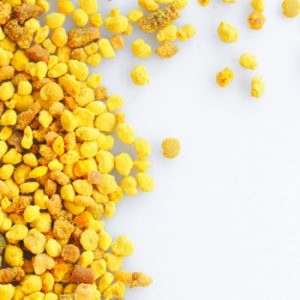
More evidence that low-calorie sweeteners are bad for your health
Studies show that artificial sweeteners can raise the risk of hypertension, metabolic syndrome, type 2 diabetes and heart disease, including stroke.

Natural Health News — The anti-oxidant, antibacterial, anti-inflammatory, anti-carcinogenic and anti-allergic properties of the pollen are widely promoted by natural health practitioners. More often than not bee pollen is promoted as one of the most ‘complete’ superfoods. But does the reality live up to the hype?
Pollen collects on bees’ legs as they forage for nectar. It is a rich mixture of carbohydrates, proteins, lipids, vitamins, minerals, polyphenols, as well as small amount of other beneficial compounds. It is nourishing food for the hive and many small studies have demonstrated wide-ranging human health benefits from supplementing with bee pollen.
Writing in the Journal of Functional Foods, an international research team reviewed the evidence on the claimed benefits and nutritional properties of bee pollen and its potentially active metabolites such as polyphenolic acid and flavonoids.
Their conclusion? “Bee pollen is the nutrient rich treasure trove of active natural metabolites and benefits human health,” said the researchers
Range of health benefits
According to the team of Chinese and Brazilian researchers, previous studies have identified dozens of different types of flavonoids which contribute to its effectiveness.
A bee pollen rich diet, according to the data, could prove beneficial for children who have a loss of appetite and/or those suffering from malnutrition and can help ameliorate adverse reactions during chemotherapy and radiotherapy
In addition bee pollen has demonstrated mental/physical benefits to people undertaking strenuous or stressful work. Studies also show that a diet supplemented with bee pollen strengthens muscles and improves body conditioning
The researchers also looked at the safety profile of bee pollen – addressing concerns of its allergenic potential
In the researchers’ view, airborne pollen allergens caught in bee pollen are the main allergy risk factor and better quality control can help reduce that potential.
Bee pollen grains can be bought in most health stores and can be sprinkled yogurt, oatmeal, or smoothies. They can also be ground down as a supplement powder or into a capsule. There is no official recommended dose but as a guideline adults should consume 3-5 tbl per day, and children 1-2 tbl per day.

Please subscribe me to your newsletter mailing list. I have read the
privacy statement